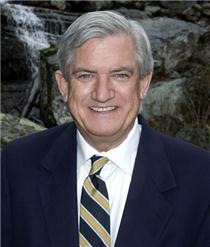
Roy Exum
One morning earlier this week I was able to spend about 10 minutes with a university professor who teaches English composition to freshmen students. It wasn't lost on me that I haven't listened to an English professor in almost 40 years. Even more pointed was the fact it was the longest conversation I've ever had with a college professor in my life.
With that said, I delighted in hearing her describe how hard it is to teach college students to write. The biggest reason, she said, is because kids today don't read like the generations before have done. I told her the trick for me was reading about things that really interested me, stuff that made me passionate like Harper Lee's "To Kill A Mockingbird" and, years later, Pat Conroy's "The Prince of Tides."
My love affair with words really began in high school. Every Thursday my weekly copy of Sports Illustrated would arrive in the mail and the magazine's writers were so wonderful it wasn't long before I wanted to write like they did.
That was 40 years and a whole lot of words ago.
Another thing happened earlier this week; a friend shared "An Ode To English Grammar" with me. So today, as something of a tribute to those like the college professor who teach our children about subject-verb agreement, how to spell, and delight in the five "feet" of iambic pentameter, allow me to share the ode because it is so wonderfully clever.
I don't know who originally wrote it, except for the fact it has been around for a number of years. As you read it, imagine the struggle and triumph of teaching plurals to a second-grader:
AN ODE TO ENGLISH PLURALS
We’ll begin with a box, and the plural is boxes,
But the plural of ox becomes oxen, not oxes,
One fowl is a goose, but two are called geese,
Yet the plural of moose should never be meese.
You may find a lone mouse or a nest full of mice,
Yet the plural of house is houses, not hice.
If the plural of man is always called men,
Why shouldn’t the plural of pan be called pen?
If I speak of my foot and show you my feet,
And I give you a boot, would a pair be called beet?
If one is a tooth and a whole set are teeth,
Why shouldn’t the plural of booth be called beeth?
Then one may be that, and three would be those,
Yet hat in the plural would never be hose,
And the plural of cat is cats, not cose.
We speak of a brother and also of brethren,
Then the masculine pronouns are he, his and him,
But imagine the feminine: she, shis and shim!
Let’s face it: English is a crazy language.
There is no egg in eggplant, nor ham in hamburger;
Neither apple nor pine in pineapple.
English muffins weren’t invented in England.
We take English for granted, but if we explore its paradoxes,
We find that quicksand can work slowly, boxing rings are square,
And a guinea pig is neither from Guinea, nor it is a pig.
And why is it that writers write but fingers don’t fing?
Grocers don’t groce and hammers don’t ham?
Doesn’t it seem crazy that you can make amends but not one amend?
If you have a bunch of odds and ends and get rid of all but one of them,
What do you call it?
If teachers taught, why didn’t preachers praught?
If a vegetarian eats vegetables, what does a humanitarian eat?
Sometimes I think all the folks who grew up speaking English should be
Committed to an asylum for the verbally insane!
In what other language do people recite at a play and play at a recital?
We ship by truck but send cargo by ship.
We have noses that run and feet that smell.
We park in a drive way and drive in a parkway.
And how can a slim chance and fat chance be the same?
While a wise man and a wise guy are opposites?
You have to marvel at the unique lunacy of a language in which,
Your house can burn up as it burns down,
In which you fill in a form by filling it out,
And in which an alarm goes off by going on.
And, in closing, if father is a pop, how come mother is not mop?
royexum@aol.com